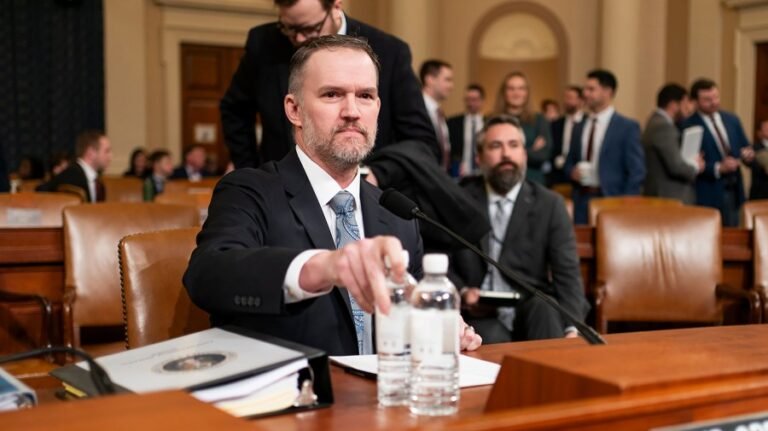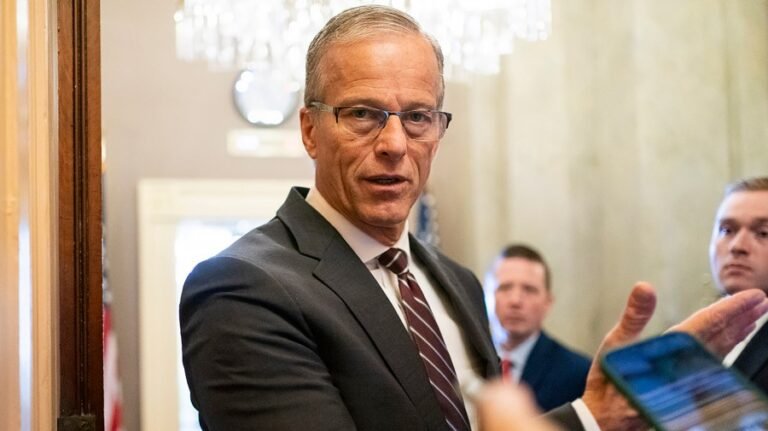
The Trump administration is preparing an historic executive order to reassert American leadership on a new mineral frontier: the deep ocean floor. The order lays the groundwork for a new $100+ billion industrial sector, one that could supply essential materials for batteries, defense, aerospace and advanced manufacturing for decades. Congress should get behind it.
Seafloor minerals consist of essential metals like nickel, cobalt, manganese and copper, all of which are on the critical minerals list. Deep sea mining adapts technology from the offshore oil and gas industry, an existing American competitive advantage. Additional innovations like remote operated vehicles mean these minerals can now be extracted economically.
A recent RAND report estimated the new industry could support tens of thousands of jobs and meet a quarter of global metal demand by 2040. New jobs will span shipyards on the Gulf Coast, ports in Hawaii and the Pacific, metallurgical facilities in the Rust Belt, and robotics hubs from Houston to Boston. It’s a national industrial lift that supports working-class jobs and high-tech startups alike.
The move is bold, strategic, and necessary. China is already moving to develop ocean resources to cement their hold on critical minerals. In February, the communist nation signed a strategic deal with the Cook Islands that aims to strategically wrest control of the Pacific from U.S. influence.
More broadly, seafloor resources are part of intensifying great power competition over the seabed. China and Russia are expanding their deep sea presence through undersea cable warfare, seabed surveillance and military infrastructure. The Cook Islands lies directly on the sea lines of communication between the United States and the South Pacific, including submarine telecommunications lines that connect us with Australia and New Zealand.
For over a decade, the International Seabed Authority, a paralyzed UN body, has stalled on finalizing rules for commercial mining. This delay has given China room to maneuver; they now hold the most ISA exploration permits of any country and are pouring money into the industry.
America does not need UN permission to advance its strategic interests.
The planned U.S. executive order reinvigorates a 1980 law, the Deep Seabed Hard Mineral Resources Act, that establishes U.S. licensing authority in the National Oceanic and Atmospheric Administration over seabed mining in international waters. It is also likely to direct other actions, including expedited permitting, onshoring processing supply chains and even establishing a strategic national stockpile of seafloor resources.
The administration’s moves are already catalyzing momentum. The Metals Company, the current industry first mover, decided to switch to the U.S. framework to mine the Clarence-Clipperton Zone, a large area between Hawaii and California that China covets. Just this week, American startup company Impossible Metals announced plans to apply to the Bureau of Ocean Energy Management to mine in U.S. waters off American Samoa.
The moment of opportunity to establish an enduring lead in this new sector is now. Congress has already shown bipartisan interest in deep sea mining, with recent action on seabed processing supply chains. Over the last two decades, Federal agencies completed the largest offshore mapping project in U.S. history, supporting a continental shelf claim over 1 million square kilometers of ocean, primarily around Alaska.
It is time to take the next step. Lawmakers should move quickly to:
- update the law for modern realities, ensuring streamlined permit timelines and responsible industry standards;
- support strategic mineral stockpiles, giving federal agencies like the Defense Department and the Energy Department tools to protect against critical mineral supply disruptions;
- and ensure that American industry, workers and supply chains are competitive in this global industry.
Deep sea mining may sound futuristic, but it draws on America’s proven offshore, subsea and innovation strengths. It will create jobs in shipyards, ports, robotics, engineering and processing facilities. It’s a generational opportunity to lead the next great industrial frontier.
Alex Gilbert is vice president of regulation at Zeno Power, and a fellow at the Payne Institute for Public Policy at the Colorado School of Mines.


